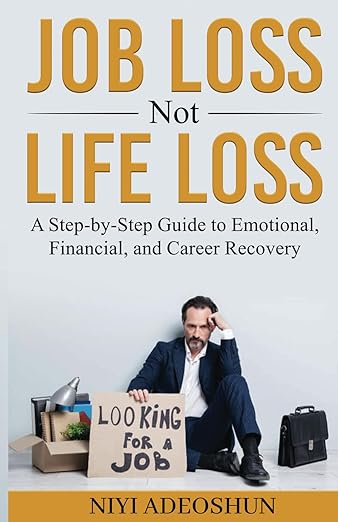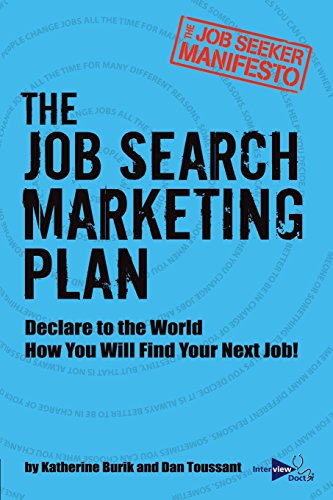We may earn a commission if you click on a product link and make a purchase at no additional cost to you. For more information, please see our disclosure policy.
Last updated: December 6, 2025
Key Takeaways
- Mindset Matters: Long-term unemployment often requires a shift in perspective; maintaining structure, optimism, and emotional balance strengthens resilience throughout the
job search . - Expand Opportunities: Exploring temporary work, volunteering, or side projects helps rebuild momentum while adding recent experience that can boost employer confidence in your capabilities.
- Invest in Growth: Developing new skills through training, education, or certifications creates fresh opportunities and demonstrates initiative to potential employers.
- Tap Support Systems: Government programs, unemployment resource centers, and community services can ease financial strain and provide guidance while you reestablish career stability.
- Stay Connected: Consistent networking, mentorship, and industry engagement open doors, provide encouragement, and help counter the isolation that often accompanies extended unemployment.
Struggling to secure a permanent job and regular income can understandably impact your confidence and overall mood. Long-term unemployment occurs for various legitimate reasons, and often a change in approach or mindset is needed to break the cycle and secure that much-awaited job offer.
If you’re facing extended unemployment, consider exploring money-making
We’re with you until you land your next job — placement support guaranteed. Four expert services. One simple fee. This personal, done-for-you, job placement support service has everything you need to find your next role.
What to Consider
- Stay positive and maintain a routine.
- Network and connect with others in your industry.
- Consider taking on temporary or part-time work to gain experience.
- Invest in
training and education to build newskills . - Volunteer or intern to build experience and fill gaps in your resume.
- Consider starting a side hustle or freelance work to stay active.
- Leverage social media and online platforms to showcase your
skills and experience. - Seek out mentorship or coaching to gain insights and guidance.
- Consider working with a staffing agency or job placement service.
- Attend job fairs, networking events, and industry conferences to connect with potential employers.
Getting Help
If you or someone you know is experiencing financial hardship during unemployment, a wide range of reputable resources can help you understand available support and navigate the process with confidence. Many platforms offer guidance on claiming unemployment benefits, comparing health
Tools such as GigSmart are part of this broader ecosystem, providing helpful information and connections to
10 Ways Your Job Search Is Messing With Your Mind (Plus 43 Super-Practical Tips to Undo the Voodoo)
Help is Available
- USA.gov: A comprehensive site for finding federal, state, and local programs and assistance. It includes a Benefit Finder to help identify eligible programs for food, health
insurance , housing, and more. - USAGov’s Government Benefits Page: Offers information on government programs that help with
expenses like food, housing, health care, etc. Covers assistance such as SNAP, housing help, and utility bill assistance. - USAGov’s Unemployment Benefits Page: Provides details about unemployment
insurance , application processes, and eligibility rules, with state-specific information. - U.S. Department of Labor Blog: Discusses the implementation of new unemployment
insurance programs and expansions of existing programs, including information about the American RescuePlan .
Accessing Other Benefits
Accessing additional unemployment benefits can significantly ease financial strain during periods of joblessness. Many unemployment resource centers serve as gateways to these benefits, providing comprehensive information and assistance. These centers can guide you through the process of applying for extended unemployment benefits, healthcare subsidies, and food assistance programs like SNAP. They also often offer career counseling, job
Utilizing unemployment resource centers offers immediate assistance in meeting basic needs and provides long-term support through tools and opportunities for re-entering the workforce. These centers serve as an invaluable support system, guiding you through the complexities of unemployment benefits and related services.
Every one of us has, at some point in our career, been directly impacted or have a friend or family member that has been impacted by job loss.
Gain Control Over Your Thoughts and Emotions
Unemployment can gradually affect your confidence and clarity, making the
- Recognize the emotional phases of unemployment so you can respond to them with awareness rather than discouragement.
- Adjust your
job search strategy when you feel stuck to regain a sense of direction and purpose. - Build small daily habits that support mental clarity and help reduce anxiety during extended unemployment.
- Incorporate activities you enjoy outside of job hunting to restore balance and protect your well-being.
- Reach out to trusted friends, mentors, or support networks when your motivation or confidence begins to slip.
a step-by-step guide to recovering emotionally, financially, and professionally so you can rebuild your future with confidence and faith. Whether you’re struggling with fear, searching for a new job, or wondering how to survive financially
Don’t be Too Hard on Yourself
Another easy trap to fall into is to dwell on past mistakes and missed opportunities, as if they were the reason you find yourself long-term unemployed.
The trick is to take time to reflect on what you could do differently to improve your job prospects without paying any attention to past negative experiences. Work out what you can do to improve yourself going forward, and leave the past behind.
Keep Up a Routine
Long term unemployment can disrupt the structure that work naturally provides, so rebuilding a steady routine helps restore focus, support your mindset, and keep you interview ready throughout your
- Create a simple daily structure that adds rhythm and purpose to your days during unemployment.
- Set aside consistent blocks of time for job applications, skill building, and personal activities.
- Use regular habits to maintain motivation and reduce the uncertainty that comes with unstructured time.
- Incorporate tasks that boost your confidence, such as organizing materials or practicing your interview responses.
- Stay active outside the house to keep your energy up and prevent isolation from slowing your progress.
We’re with you until you land your next job — placement support guaranteed. Four expert services. One simple fee. This personal, done-for-you, job placement support service has everything you need to find your next role.
Don’t be Afraid to Network
It can also feel a bit awkward approaching past colleagues and contacts, especially when you are no longer talking to them in the same capacity as before, but reaching out to people you know and trust could really help.
They could arrange an introduction or at least share some helpful information or tips you could use to your advantage.
Long-term unemployment is a cycle that you can and will break at some point soon, and that is the way to approach a chapter in your life that you would like to close as quickly as possible.
Further Guidance & Tools
- Benefit Overview: Use USA.gov to understand eligibility basics, application steps, and how unemployment
insurance works in your state. - State Support Finder: Visit CareerOneStop to locate your state’s claims portal, contact information, and local unemployment assistance.
- Job Search Help: Explore the U.S. Department of Labor’s job seekers page for tools on
training , resumes, and connections to American Job Centers. - Wellbeing Guidance: Review the WHO fact sheet on mental health at work for practical steps to protect wellbeing during job loss and career transitions.
Your manifesto provides a unique approach to your job search reflected in your job search marketing plan
Next Steps
- List the main reasons for your long term unemployment, then rewrite them as clear, honest talking points that emphasize growth and resilience.
- Identify one or two realistic work options such as temporary roles, freelancing, or volunteering that could rebuild experience while you continue your
search . - Create a simple weekly routine that balances job applications, skill building, and personal time so your days feel structured rather than consumed by worry.
- As you move forward, choose one trusted mentor,
coach , or peer who can offer honest feedback, encouragement, and accountability throughout yourjob search . - Regularly review government benefits and community programs so you understand which financial,
training , or counseling resources could support you during difficult stretches of unemployment.
Final Words
Overcoming long-term unemployment can be a challenging and stressful process, but it is not impossible. By following the strategies outlined in this article, such as staying positive, networking, improving
Remember to take care of yourself and seek support from family, friends, or professional resources if needed. Keep in mind that each individual’s journey is unique, and the key is to remain persistent, adaptable, and proactive in your job search. With patience, determination, and a bit of luck, you can successfully overcome long-term unemployment and achieve your career goals.
a step-by-step guide to recovering emotionally, financially, and professionally so you can rebuild your future with confidence and faith. Whether you’re struggling with fear, searching for a new job, or wondering how to survive financially
Mark Fiebert is a former finance executive who hired and managed dozens of professionals during his 30-plus-year career. He now shares expert job search, resume, and career advice on CareerAlley.com.






